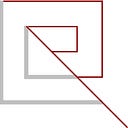Why Work is Work
I’ve heard tell that being a scientist is glamorous work. The thrill of discovery, the glory of being an independent thinker, the respect accorded to you as a senior knowledge worker and intellectual. All that jazz. The reality is that those delights occupy a tiny fraction of my time, and the rest of it is spent on theory or analysis. At least 99% of theorizing is banging your head against a proverbial wall as you come up with one wrong insight and answer after another. When I’m doing analysis, most of my day involves painstaking reviews of procedures, instruments, and data (I’ve actually spent more than 60 minutes on analyzing a single datum).
If you’re not a scientist, this may seem surprising. But then, most scientists I know would call even the paragraph above a glossy and idealized version of being a scientist (after all, I didn’t get into politics, paper-writing, grants, or any of the memos and reports we need to write).
Of course, a description of your work life probably yields something similar. Most of what you do on a day-to-day basis isn’t very interesting at all. Mostly, it’s a grind, but one that actually requires judgment, intelligence, and training to do. The nitty gritty research, numbers, editing, writing, formatting, and the like, are invisible when the final product comes out, and we often ignore just how much actually goes into it.
Remember a recent wedding day? So many people in the wedding party take hours and hours to primp, coif, and load up on layers of stuff-that-alters-our-looks. To the guests, it’s just instantaneous, and the dazzling smiles and warm emotions hide all of the rigmarole that was occurring just an hour earlier.
So, too, do the products of our work for which our professions are known come from hours of drudgery, patience-thinning inanity, and tedious t-crossing. Even when we can hire people to do some of the work that requires less experience and judgment, we still have a grind of our own. Whether it’s smiling and shaking hands with scores of people, or reviewing numbers by hand, or debugging code, most of the effort under the hood requires close-order precision in some fashion or other. It’s not fun, but it’s also not easy, and thus one of the paradoxes of work is that the challenge of the work can keep us going even when the positive emotions are rather absent. In fact, research on optimal experience (flow) reveals that, in these engaging experiences that we retroactively view as highly positive, the in-the-moment take actually tends to involve negative emotions. Think about it: when you’re wrestling with a challenge, you’re more likely to feel frustrated than having fun, and yet it is the fact of that frustration that makes overcoming the challenge so delightful and sweet that we reassess the entire experience based on that outcome. Even when we fail, if we feel that we put our best in, we still feel rather exultant in our performance in the process despite the minute-to-minute pains involved in the effort required to use our top levels of skill.
And yes, when the finished product appears, we are [one would hope] justly proud of the meaningful accomplishment that has created value in the world. In choosing our careers, we ask which grinds are more and less acceptable to us, which finished products would make us most proud, and which tasks and callings require knowledge, skills, and attitudes that are congruent with our talents and values. In some cases, the work that we choose is about putting time on people’s calendars by removing the scut that requires less experience and judgment, and we invest the salary in endeavors that we find more meaningful (for instance, volunteering for a cause we value). It is this set of choices we make, along with the broader perspective of recognizing the meaning of the value that we create, that enables us to survive the daily grind.
But it’s still work.
